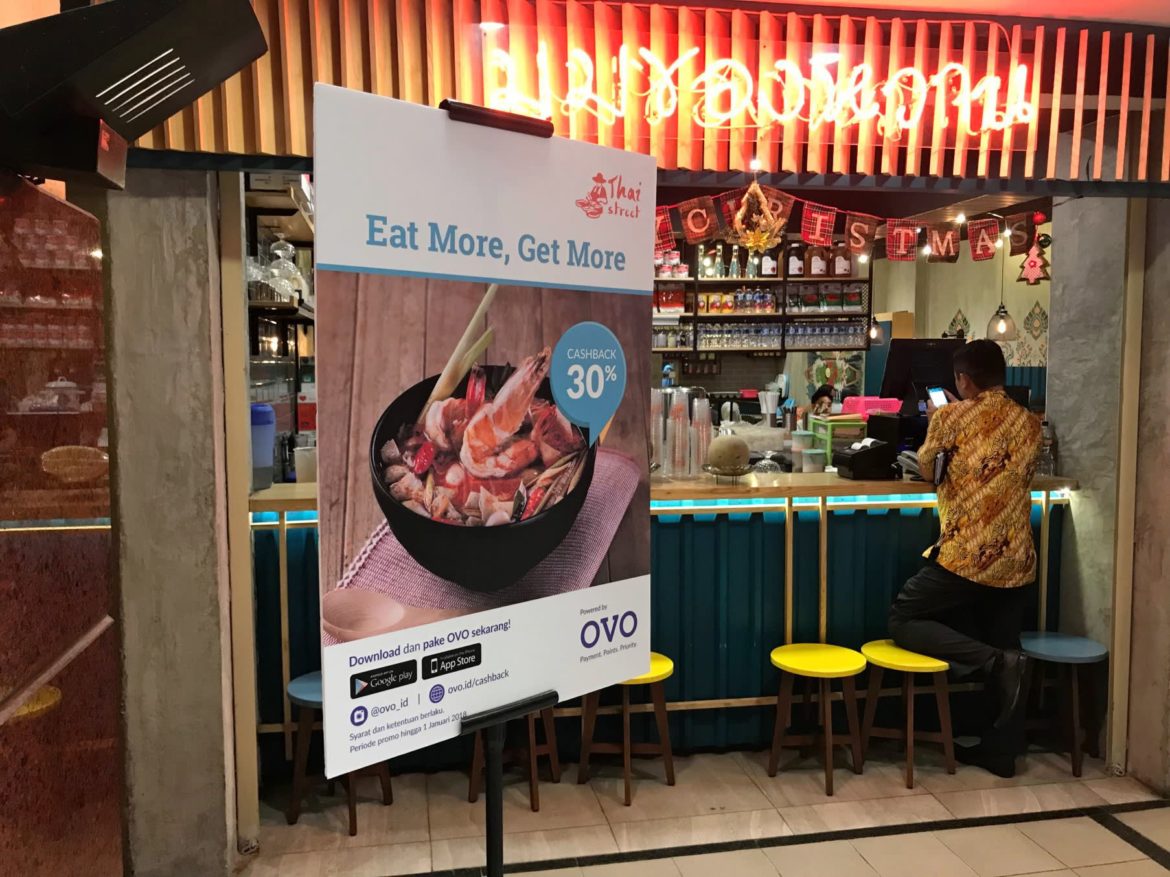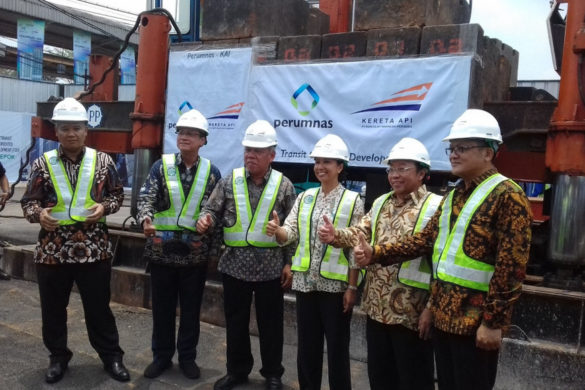Jun Suzuki and Wataru Suzuki **)
Indonesian conglomerate Lippo Group sees its future in mobile payment services and plans to use its 60 million-strong customer base to tap that promising market.
Online shopping and ride-hailing apps have caught on quickly as Indonesian consumers have embraced smartphones. More than half of the country’s population of 260 million is 30 or younger. Despite the recent surge in apps, John Riady, the executive director in charge of Lippo’s digital segment, sees far more room for growth.
“Indonesia is the last remaining large market where technology hasn’t really taken off,” Riady told the Nikkei Asian Review in a recent interview.
Riady said the group has a “10-year digital commitment to invest $100 million every year … to build our digital muscle.” “For our group, this is one of our biggest transitions as this market grows,” he said. “We want to be able to take part in the industry.”
In a way, the focus on online payments marks a return to the group’s roots in finance. Riady’s grandfather Mochtar Riady founded Lippo as a bank before it nearly collapsed in the Asian financial crisis in the late 1990s. It bounced back by using the land it had held as collateral to build a sprawling real estate business, which flourished as the economy recovered.
The question is whether the group can combine its banking expertise with the fast-moving digital technology of today. Riady points out that Lippo’s strength lies in the fact it has a wide range of businesses, such as retail and health care, that require payment processing.

That is where Ovo comes in. Lippo has been promoting the electronic payment app since last year, and Ovo’s operating company recently received $116 million in funding from Japanese finance company Tokyo Century.
Indonesia lags behind developed countries in terms of the number of people with bank accounts and credit cards. But the penetration of smartphones means there is an opening for digital wallets to take advantage of Indonesians’ changing buying habits.
“In the digital future, the wallet will be the core of your consumer engagement,” John Riady said. “So whoever can win that wallet, you have won the customer. You own the customer.”

Riady acknowledges that “heavy competition” lies ahead. Go-Jek, which operates the popular ride-hailing app of the same name, has said more than half of the app’s transactions are processed by its e-money service, Go-Pay. In December, it acquired three financial technology startups to gear up for further expansion, including processing payments at restaurants and other offline stores. “2018 will be the year that Go-Pay moves beyond the Go-Jek ecosystem, providing convenient, secure and reliable payments both offline and online,” said group president Andre Soelistyo.
Riady is unfazed. The key to success in the market, according to him, is building a “merchant ecosystem” across multiple industries, such as retail and transportation. He pointed to Alibaba Group Holding and Tencent Holdings — two Chinese e-money pioneers — as prime examples. While the two conglomerates are planning their own forays into Indonesia’s online payments market, he said Lippo’s involvement in malls, hypermarkets and hospitals gives it a unique advantage in the market.
“You need to be able to take and use it for everything,” he said. “The winner will be the one who has that cross-industry use case from the traditional market to the mall.”
BEYOND RIDES Riady also revealed Ovo’s partnership with Singapore-based peer Grab on the e-money front.
Grab, of which Lippo is a shareholder, previously offered its GrabPay mobile wallet in Indonesia but was forced to partly suspend operations because it had been unable to obtain a license from Indonesia’s central bank. The tie-up with Lippo, which has a license, removed that hurdle.
While it is still a “co-branding” partnership — Grab users are currently unable to use Ovo’s e-money to pay for rides — Riady said “it will be seamless soon.”
Ovo is also launching new financial services powered by big data analysis, Riady said. As a first step, the group has begun integrating data on its 60 million customers across its various business lines to create a “single customer view.” Analysis of e-money and point card histories will be used, for example, to approve digital-money financing.
To test a new lending framework, Ovo recently made home loans to 400 people on a trial basis, using purchase histories and payment statuses to help determine eligibility.
“We want to accumulate data, customer data and algorithms” before a full-fledged launch, Riady said.
Roughly 10 trillion rupiah ($750 million) worth of e-money changed hands in Indonesia between January and November of last year, according to the central bank. There are 26 registered e-money service providers, and usage rates jumped nearly 50% last year.
Lippo’s aggressive push into digital businesses comes amid a funding boom in the country’s technology industry. In August, e-commerce site Tokopedia announced a $1.1 billion funding round lead by Alibaba. Online travel agent Traveloka raised $350 million from U.S.-based Expedia.
Riady estimates that the total value of Indonesia’s technology companies is currently between $8 billion and $12 billion and predicts it will double or triple in the next five years. He added that a handful of large tech conglomerates “will have disproportionately large access to capital,” similar to what has happened in China. He said valuations for Indonesian technology companies are “among the highest in the world,” which is a “reflection of how much potential there is in the market.”
Riady did not paint an entirely rosy picture, however. Indonesia’s economy has seen a rapid recovery in the two decades or so since the Asian currency crisis. But “we are entering a new normal, where growth will be a bit lower,” Riady said. “So businesses will have to work harder.” He noted that the performance of Lippo health care unit Siloam International Hospitals, the country’s largest private hospital operator, “is very strong” and expressed hopes for a pickup in consumer spending in 2018.
Many conglomerates in Southeast Asia are facing a generational change. Riady’s father, James Riady, currently serves as group CEO. As the head of digital operations, positioned as Lippo’s next growth driver, John Riady, who is still in his 30s, stands as the likely heir to the group.
There is a precedent of young, third-generation leaders taking the wheel at Indonesian conglomerates. At Sinar Mas, Jackson and Michael Wijaya, grandsons of group founder Eka Tjipta Widjaya, oversee core operations.
Only 34% of Asian family-owned corporations have named successors, according to PricewaterhouseCoopers. For those that have not, battles over succession could have serious consequences in terms of management.
India’s Tata group became embroiled in a family feud in 2016, with Cyrus Mistry eventually ousted as chairman after much wrangling.
Some family-owned conglomerates in Asia are increasingly looking for top managers outside the clans. SM Investments, based in the Philippines, appointed a new chairman and president unrelated to the founding Sy family. The family will now focus on formulating long-term strategy. (S-AN/jr)
*) Article from Nikkei Asian Review: “Lippo Group moves in on I donesia’s cashless society”
**) Nikkei staff writers












